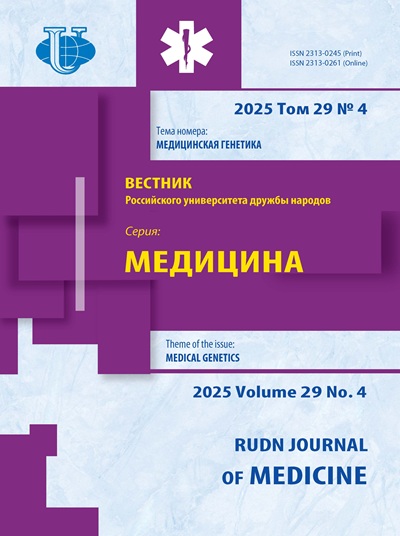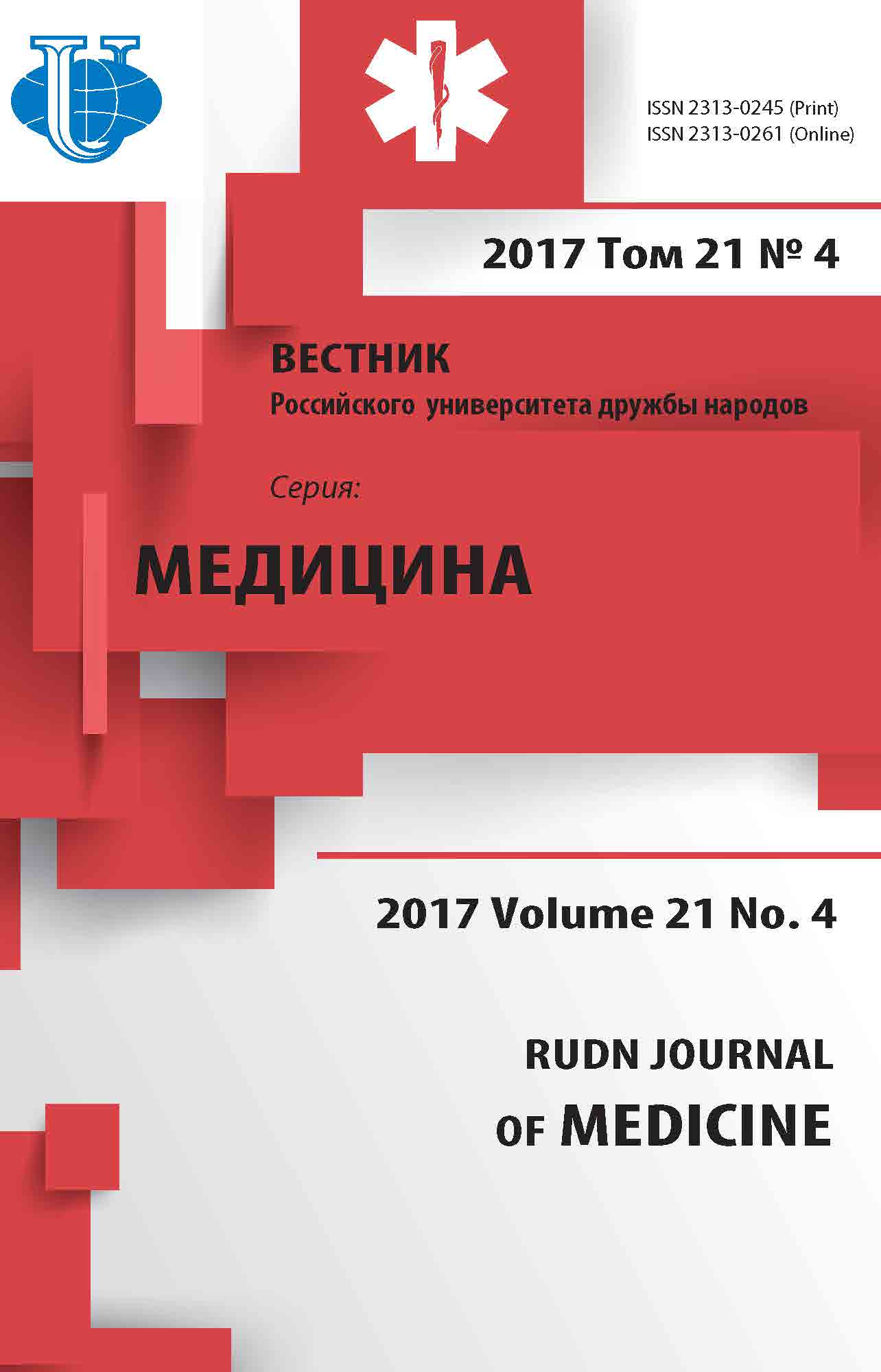DESIGN OF HPLC METHODS OF AFOBAZOLE QUANTITATIVE ANALYSIS IN BLOOD PLASMA
- Authors: Yakusheva EN1, Chernih IV1, Shchulkin AV1, Gatsanoga MV1
-
Affiliations:
- Ryazan State Medical University
- Issue: Vol 21, No 4 (2017)
- Pages: 432-439
- Section: Articles
- URL: https://journals.rudn.ru/medicine/article/view/17680
- DOI: https://doi.org/10.22363/2313-0245-2017-21-4-432-439
- ID: 17680
Cite item
Full Text
Abstract
The article describes a method of quantitative analysis of anxiolytic drug with neuropro-tective activity - fabomotizole (afobazole) in rabbit blood plasma by HPLC with UV detection at 302 nm. The analysis was performed in isocratic mode using Stayer chromatography system and a reversed-phase column Phenomenex Synergi 4u Polar-RP 80A (250х4.6,4 µm) and a mobile phase (acetonitrile-water-glacial acetic acid-triethylamine in the ratio 100 : 240 : 100 : 0,3 : 0,25) at pH 6.1. The retention time of test-substance was 10,00 +/- 0,11 min. Fabomotizole extraction from plasma carried using diethyl ether (1.5 ml plasma and 6 ml acetonitrile) by shaking on Shaker apparatus at 400 vol./min for 10 minutes, centrifuging at 3500 rpm. for 10 minutes and evaporation of the supernatant on a vacuum rotary evaporator at 40 C. The recovery was 87%. The developed technique is characterized by sensitivity, specificity, ease of implementation, repro-ducibility and linearity in the plasma concentration range after oral administration of 3.8 mg of the substance (Afobazol tablets, 10 mg, Pharmstandart-Leksredstva, Russia) to rabbits.
Keywords
About the authors
E N Yakusheva
Ryazan State Medical University
Author for correspondence.
Email: e.yakusheva@rzgmu.ru
Якушева Елена Николаевна, д.м.н., профессор, заведующая кафедрой фармакологии с курсом фармации ФДПО ФГБОУ ВО РязГМУ Минздрава России, г. Рязань
I V Chernih
Ryazan State Medical University
Email: e.yakusheva@rzgmu.ru
A V Shchulkin
Ryazan State Medical University
Email: e.yakusheva@rzgmu.ru
M V Gatsanoga
Ryazan State Medical University
Email: e.yakusheva@rzgmu.ru
References
- Avedisova A.S. Afobazol is a safe drug for the treatment of anxiety in general practice. Russian medical journal. 2006. T. 14. № 22. P. 1—3.
- Bochkov P.O. et al. The pharmacokinetic evaluation of a prolonged drug dosage form of afobazol in comparison with tablets of the preparation, manufactured by industry. Experimental and clinical pharmacology. 2013. P. 76. № 11. P. 33—35.
- Voronina T.A., Seredenin S.B. Nootropic and neuroprotective agents. Experiment-clinical pharmacology. 2007. P. 70. № 4. P. 44—58.
- Gatsanoga M.V., Chernykh I.V., Shchulkin A.V. et al. Is it possible to assess affiliation medicinal substances to glycoprotein-P substrates on female rabbits of Shinshilla. Science of the young (Eruditio Juvenium). 2016. Vol. 4. № 4. P. 5—10.
- Grushevskaya L.N., Milkina S.E., Stepanenko О.B. Pharmaceutical analysis and standartization of the solid dosage form of afobazole. Chemical-Pharmaceutical Journal cash. T. 44. № 9. P. 49—52.
- Toxicological chemistry metabolism and analysis of toxicants. Ed. N.I. Kaletina. Moscow: GEOTAR-MEDIA, 2008. 977 p.
- Epstein N.A. Assessment of fitness (validation) of HPLC techniques in the pharmaceutical analysis (review). Chemical-pharmaceutical journal. 2004. P. 38. № 4. P. 40—56.
- Yakusheva E.N., Chernykh I.V., Biryukova A.S. Characterization of glycoprotein-P as a protein- transporter of medicinal substances. Ros. medico-biol. known. them. acad. I.P. Pavlova. 2011. № 3. P. 142—148.
- Dey S., Patel J., Anand B.S. et al. Molecular evidence and functional expression of P-glycoprotein (MDR1) in human and rabbit cornea and corneal epithelial cell lines. Invest. Ophtalmol. 2003. Vol. 44. № 7. P. 2909—2918.
- Ecker G. et al. The importance of a nitrogen atom in modulators of multidrug resistance. Mol. Pharmacol. 1999. Vol. 56. № 4. P. 791—796.
- El-Ela A.A. et al. Identification of P-glycoprotein substrates and inhibitors among psychoactive compounds-implications for pharmacokinetics of selected substrates. J. Pharm. Pharmacol. 2004. Vol. 56. № 8. P. 967—975.
- Nare B. et al. Benzimidazoles — potent anti-mitotic drugs: substrates for the P-glycoprotein transporter in multidrug-resistant cells. Biochemical pharmacology. 1994. Vol. 48. No. 12. P. 2215—2222.
Supplementary files















